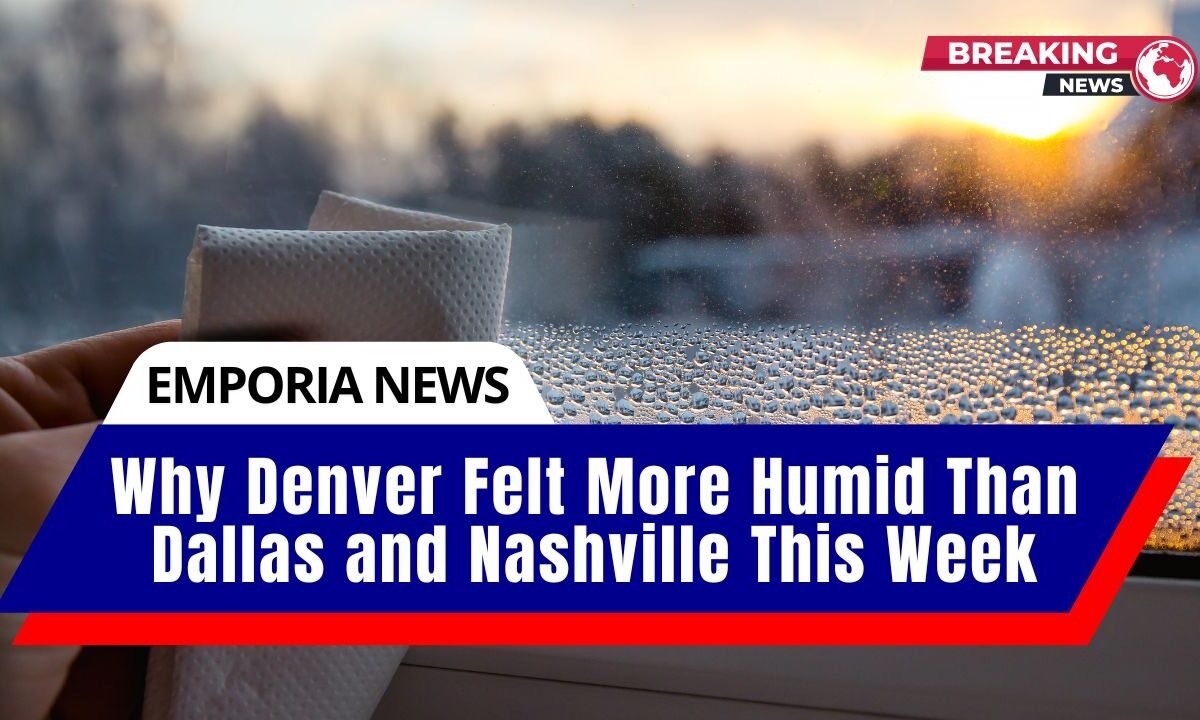Metro Denver experienced a rare bout of elevated humidity on Tuesday morning, surpassing typically more humid cities like Dallas, Nashville, Chicago, and Oklahoma City.
According to 9News Senior Meteorologist Chris Bianchi, the dew point in Denver reached 66 degrees around 6:30 a.m., a surprising number for the region known for its dry climate.
Cooler Temperatures Behind Cold Front Drive Up Humidity
Kenley Bonner, a meteorologist with the National Weather Service in Boulder, explained that the high humidity was a result of cooler temperatures trailing a cold front. She noted,
“Behind that cold front, our relative humidity increases because of the cooler air, while places like Oklahoma are still dealing with hotter conditions.”
At the same time, AccuWeather reported that temperatures in the other cities ranged into the 90s by late morning.
Both Dallas and Oklahoma City were under heat advisories from noon to 7 p.m., while Nashville was dealing with an extreme heat warning through 8 p.m.
Dew Points Reveal the Real Moisture
The dew points across these cities varied from the upper 60s to mid-70s. The National Weather Service explains that the higher the dew point, the more moisture is present in the atmosphere.
Denver usually sees dew points in the 40s and 50s during this time of year, with even lower readings on particularly dry days.
Why Denver’s Climate Typically Feels Dry
Bonner noted that Denver is known for high-based convection due to its dry atmosphere, which often leads to gusty outflows during virga showers—rainfall that evaporates before reaching the ground.
“We have large dewpoint depressions—that’s low dew points combined with high temps. That’s why we see those strong gusty winds,” she explained.
Humidity Expected to Subside Soon
Despite the surge in moisture, the Front Range isn’t expected to stay muggy for long. According to the National Weather Service, the forecast for Denver includes scattered showers and thunderstorms through Saturday night, which will help reduce the relative humidity.
Bonner also explained how the cycle works:
“Precipitation helps lower humidity, but when followed by several days of warm, dry weather, humidity levels drop again.”
Denver’s recent spike in humidity may have come as a surprise, but it’s rooted in a combination of cooler post-front air, dew point dynamics, and typical Rocky Mountain weather patterns.
Though unusual, this humid episode is likely temporary, with thunderstorms and drier air expected to bring things back to normal by the weekend.




